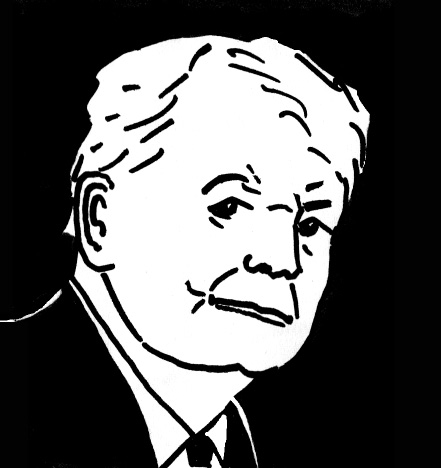Well it couldn’t happen could it? So said 90 percent of the commentators – but it did.
Donald Trump, once only known here because of some row about a golf course in Scotland, is going to be president of the United States. He will soon be the key world figure with his finger on the nuclear button which, if pressed, could be the end of us and most of our lovely world.
We have been here before. Read Daniel Ellsberg’s Secrets: a Memoir of Vietnam.
How close we got then to nuclear disaster! When US secretary of state Henry Kissinger told US president Richard Nixon in April 1972 that bombing the water dykes in North Vietnam might kill 200,000 people his answer was: ‘I’d sooner use the nuclear bomb’.
By May 1972, Nixon was even clearer. ‘Bastards’, he called the Vietnamese, and said to Kissinger: ‘You are so concerned about civilians and I don’t give a damn – I don’t care....’
Ellsberg’s memoir is a chilling reminder that the use of nuclear weapons was on the US political agenda as a solution to the problems of Vietnam. It was his courage as a whistleblower that helped to bring about the chain of events that ended that war. Thank God for whistleblowers. We may need some more of them quite soon.
Praise for Petrov
My own belief is that accidents and misunderstandings have brought us closer to nuclear war than has deliberate intent. Peace News readers may not remember reading the Daily Mail in October 1998. That paper ran a true story about Russian colonel Stanislaus Petrov who, in 1983, was in charge of an observation bunker facing NATO armies.
Petrov refused to believe what his computer and some of his colleagues were telling him about a surprise United States nuclear attack. The computer said that five missiles had been launched and were on their way eastwards. He should have told them in Moscow what might be going on but would not do so. Had he done so there was every chance that Soviet missiles would have been launched in retaliation. The incoming ‘missiles’ turned out eventually to be a very unusual atmospheric formation. Petrov was subsequently reprimanded for not obeying orders! Nevertheless he probably saved the world. Three cheers for disobedient officers.
This is a moment of hope as well of danger. Right now, thanks to international campaigning, there is a resolution that has just been debated by the UN general assembly calling for the elimination of all nuclear weapons. The usual suspects of course voted against, but it was supported by a substantial majority of states. Even North Korea, usually portrayed as the villain in these scenarios, voted in favour.
If ever there was a time for action this is it. Messages of congratulations to all those who voted in favour. Our government (it voted ‘No’ of course) needs to be swamped with letters and so also all those MPs who voted in favour of spending over £200 billion on building and running a new set of nuclear missile submarines to replace Trident .
Our biggest problem is probably public ignorance for which we must take some responsibility. Easy to forget how little most people know about the reality of these critical issues, which received scant attention in both the Brexit referendum and the US elections.
The United Nations? Yet saving humanity ‘ from the scourge of war’ was the main motivation for its creation. The European Union? Who knows anything about the dreams of its founders that Europe might be a zone both of peace and of peacemaking.
No shortage of things to do especially in our new Trumped-up world.
See more of: Bruce Kent


